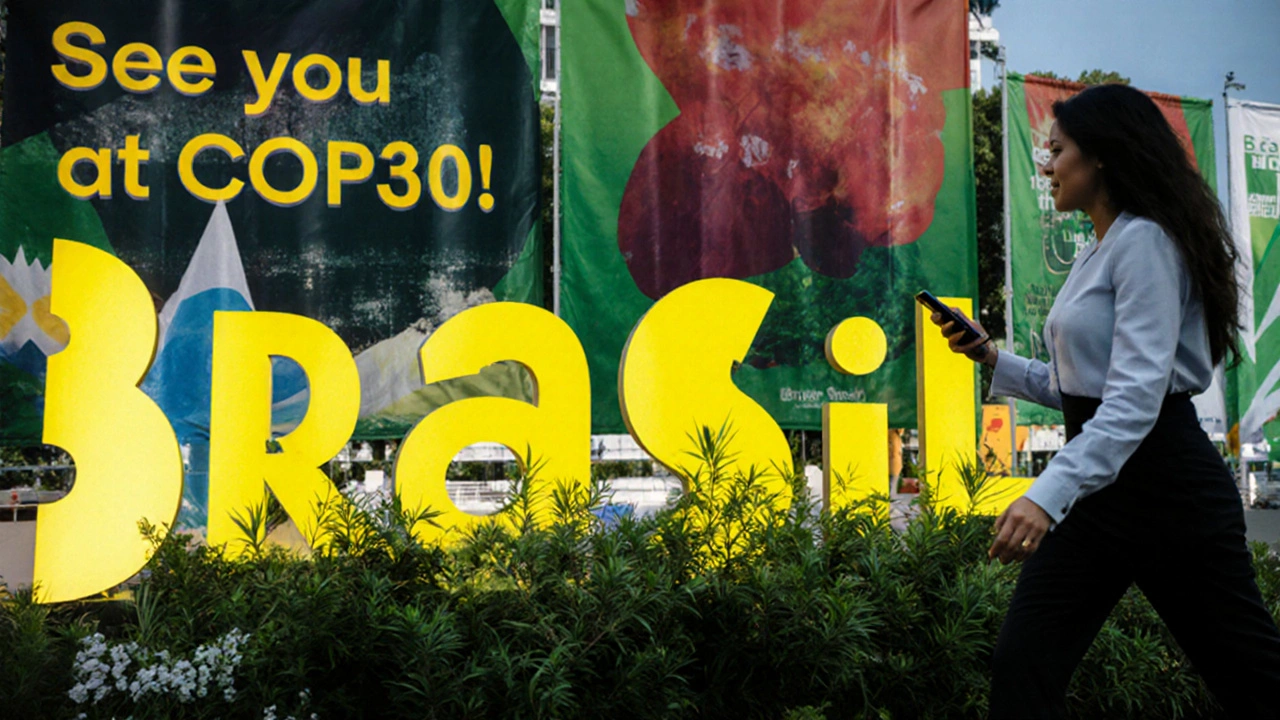Sir Tony Blair’s private consultancy, the Tony Blair Institute, contacted Brazil’s Ministry of Environment early 2025 with a proposal to lend advisory support to the nation’s COP30 climate summit slated for November 2025. The offer, which promised strategic input based on the Institute’s recent work with the United Arab Emirates (COP28) and Azerbaijan (COP29), was politely declined by Brazilian officials. The refusal came at the same time Blair published a sharply worded 50‑page report, The Climate Paradox: Why We Need to Reset Action on Climate Change, in which he lambasted the United Nations climate negotiation framework as too weak to generate real‑world impact.
Background to the Rejection
Brazil’s decision fits a broader pattern of the host nation seeking to chart an independent course for the summit. After a successful G20 Presidency in 2024, Brasília is eager to showcase a climate agenda that reflects its own development priorities rather than external advisory scripts. Analysts note that accepting a proposal from a figure linked to past summits hosted by countries with deep fossil‑fuel interests could stir domestic criticism and undermine Brazil’s credibility.
Blair’s report, released just days before the rejection became public, characterises the current net‑zero debate as "irrational" and "politically toxic". He argues that voters are being asked to shoulder excessive financial sacrifices, while the promised economic transformation remains elusive. According to Blair, the climate momentum has stalled, marking what he describes as "the greatest loss of climate impetus in recent history" – a claim that resonates with skeptics of the Paris‑era framework.
In Britain, the report has ignited a political firestorm. Critics point out Blair’s involvement with the UAE and Azerbaijan during COP28 and COP29, events that were criticised for allowing fossil‑fuel‑rich hosts to shape the agenda. Opponents argue that his call for a "reset" could be a thinly‑veiled attempt to shift responsibility away from wealthy nations toward emerging economies.
Blair's Climate Reset Blueprint
The core of Blair’s proposal is what he calls "positive disruption" – a shift from rhetoric to measurable outcomes. He advocates a rapid pivot toward technological solutions, emphasising:
- Alternative fuels such as green hydrogen and advanced bio‑fuels
- Carbon‑capture, utilisation and storage (CCUS) at scale
- Digital tools powered by artificial intelligence to optimise energy consumption
- Public‑private partnerships that channel financing directly into innovation pipelines
Blair suggests setting up a new cooperative framework that would pool political will and financial resources around these technologies, bypassing the traditional UN negotiation process that he deems "heavy‑handed" and "slow". He envisions a summit where the headline metric is the amount of carbon removed or avoided, rather than the number of pledges signed.
While the report’s tone is critical, Blair does acknowledge that existing climate agreements have spurred important advances. However, he insists that the next step requires "bold leadership" and "disruptive innovation" – a stance that aligns with the growing call among some policy circles for a tech‑centric approach to decarbonisation.
Brazil’s refusal to engage with the Institute may also reflect a strategic gamble. By charting its own agenda, the host hopes to sidestep perceptions that the summit will be another stage for external consultants to push a narrow set of solutions. Instead, Brazilian officials have hinted at a focus on leveraging the country’s vast renewable potential – particularly in bioenergy, wind, and solar – while also addressing deforestation and agricultural emissions.
The episode underscores a widening rift within the global climate community. On one side are diplomats and NGOs who champion multilateral negotiation and equity‑based pledges; on the other are figures like Blair who argue for a faster, technology‑driven route that sidesteps what they view as bureaucratic inertia. As the world watches Brazil prepare for the most consequential climate gathering since Paris 2015, the debate over "reset" versus "refine" will likely dominate the pre‑summit discourse.
Regardless of the outcome, the rejection of Blair’s advisory offer signals that host nations are becoming more assertive about shaping their own narratives. Whether Brazil’s approach will deliver the "positive disruption" Blair envisions remains to be seen, but the stakes are undeniably high – the next few years will dictate whether the climate agenda can regain its lost momentum or continue to flounder under competing visions.

